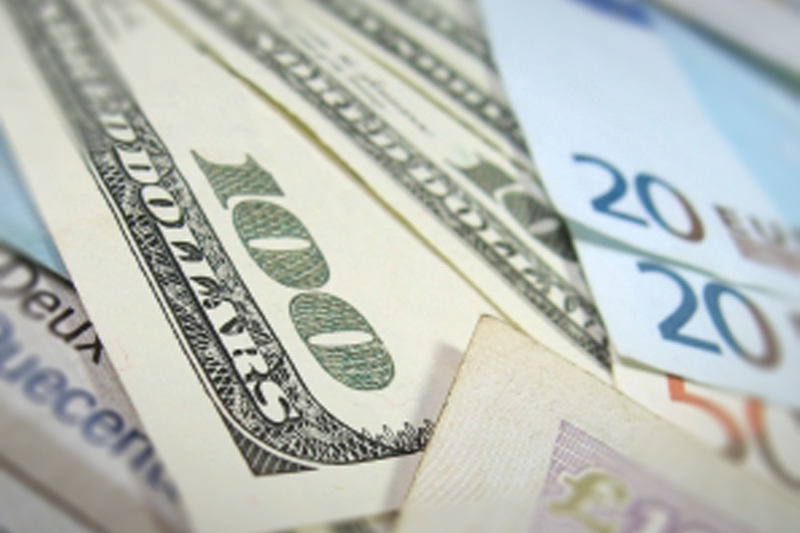Investing.com - The euro trimmed losses against the U.S. dollar on Friday, after disappointing U.S. fourth quarter growth data dampened demand for the greenback, although concerns over Greece's debt woes continued to weigh.
EUR/USD eased off 1.0801, the pair's lowest since March 23, to hit 1.0864 during U.S. morning trade, still down 0.18%.
The pair was likely to find support at 1.0765, the low of March 23 and resistance at 1.1052, Thursday's high.
The dollar came under pressure after the U.S. Bureau of Economic Analysis said that fourth quarter gross domestic product rose 2.2%, in line with a preliminary estimate but below expectations for a growth rate of 2.4%.
Separately, the University of Michigan said that its consumer sentiment index rose to 93.0 this month from a reading of 91.2 in February, beating expectations for a rise to 92.0.
The University of Michigan also reported that its inflation expectations for the next 12 months remained unchanged at 3.0% in March.
Meanwhile, sentiment on the euro remained vulnerable after Greece failed in a bid on Wednesday to secure a quick cash payment from the euro zone rescue fund to help stave off potential bankruptcy next month.
Athens had appealed for the European Financial Stability Facility to return €1.2 billion it said it had overpaid when it transferred bonds intended for bank recapitalization this month.
The Greek government is expected to present a detailed list of proposed reforms to its eurozone partners by next Monday.
The euro was also lower against the pound, with EUR/GBP declining 0.52% to 0.7292.
The pound strengthened earlier, after Bank of England Governor Mark Carney said that the central bank's next move on interest rates would be upward.
Also Friday, the Nationwide Building Society reported that U.K. house prices rose 0.1% this month, disappointing expectations for a 0.2% gain, after a 0.1% downtick in February.
